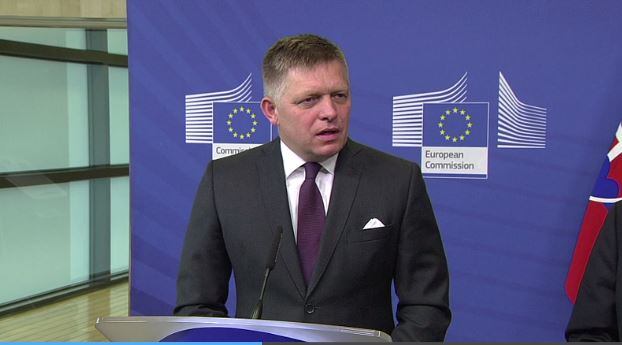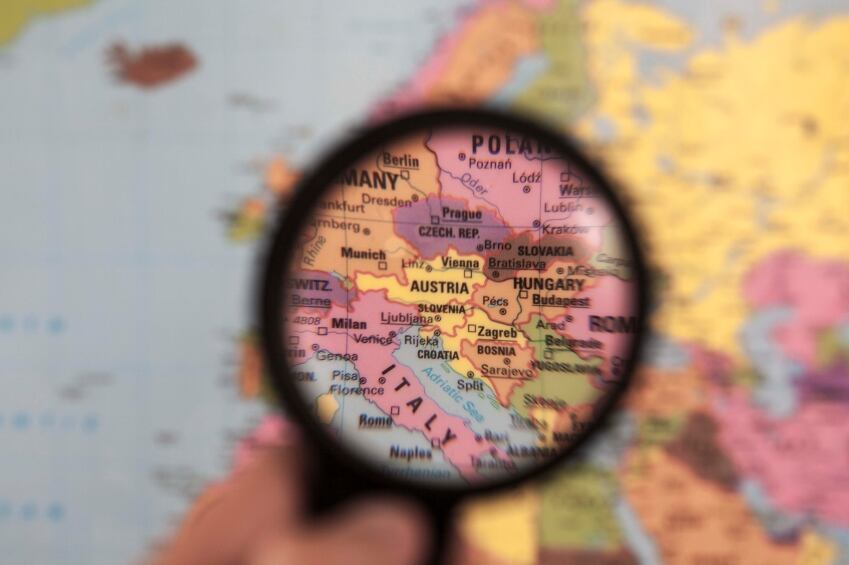“We will pursue our common intention to put an end to this discriminatory [practice] of providing the Slovak people with food products and other goods of a lesser quality," Juncker said after a meeting with Slovakian prime minister Robert Fico. "This is totally unacceptable and the Commission is working together with the Slovak minister in that direction.”
“You will not be disappointed,” he added.

The Commission had a part to play although “substantial responsibility” lay with the food safety authorities of member states, Juncker said.
Fico said the issue is a serious political problem for the member states he represented at the meeting: Slovakia, the Czech Republic, Hungary and Poland, together known as the Visegrad 4.
The Commission is now working on preparing more detailed guidelines for national authorities, according to vice-president of the Commission's Energy Union Maroš Šefčovič.
Due to be published in September, these guidelines will refer to existing legislation, advising member states on how to identify illegal commercial practices where retailers or producers deliberately mislead consumers about what they are buying.
“We have already asked member states to provide us with more evidence – what is really going on, where is there dual quality – so we have the concrete matters that we can work on together,” Šefčovič said.
Fighting words against 'food apartheid'
This proactive stance is something of a U-turn from the Commission which, just last month, said it saw no evidence of lower quality products or products of a lower nutritional content in certain areas of the bloc.
But member states affected by the practice have been putting up a fight. Bulgaria’s prime minister Boyko Borissov slammed the issue as “food apartheid” while Fico

warned that Slovakia would levy import restrictions on poorer quality goods.
In June, Hungary notified the EU of legislation it plans to bring in requiring manufacturers to add obligatory warning labels on foods with a different ingredient composition to those sold outside the country.
The issue has also been taken up by the commissioner for justice, consumers and gender equality, Vĕra Jourova. “I am on the side of European consumers, who should not be treated as second class if they are from member states,” she said this month. “We need to join forces to get rid of this practice.”
FDE: 'We take the accusations very seriously'
Florence Ranson, director of communications for FoodDrinkEurope (FDE), said it was taking the accusations of 'dual quality' very seriously.
“Last Tuesday, we had a constructive discussion with Commissioner Jourová together with the European Brands Association (AIM) and EuroCommerce, where the associations agreed to collaborate on the plans of the commissioner as they develop.
“We particularly welcome that the Joint Research Centre (JRC) has been tasked to strengthen the evidence-base by validating rigorous EU-wide testing methodologies which should lead to better and more uniform evidence of the alleged problem,” Ranson added.
However, FDE maintains that different recipes do not necessarily mean dual quality. Manufacturers may change a product's composition due to national legislation, taste or local sourcing, it said.
Deputy director general and director of consumer information and nutrition at FDE Dirk Jacobs pitched manufacturers’ case at a high level forum meeting last month, giving examples of branded products whose recipe or packaging differs depending on the market it is sold in.
One case concerned Igloo fish fingers. The version sold in Slovakia have a lower fish content (58%) than the same branded product in Austria, which has 65%, but those sold in Western member states the UK, Netherlands and Portugal also have 58%. “The product is different but no evidence of an East-West divide,” he said.
'This is geo-blocking in offline world'
Project manager at Slovakian consumer group SOS Petra Vargová Čakovská said it is glad the issue - which it first flagged back in 2009 - is finally getting some public attention.

"With the huge support of the public, we believe now is the right time for the Commission to act and show Europeans that Brussels really cares about their health, wealth and practical consumer rights, especially when there is such a broad discussion about geo-blocking in digital world.
"... The dual quality of goods [is] a very practical example of geo blocking in offline world, there is no point to go further with them," she told us.
However, Čakovská said she does not think the Commission will see the problem as a fight between East and West because of product differences seen in, for example, yoghurts in France and Belgium.
Clear labelling that allows people to make informed purchases are the best way to tackle the issue, she said.
"We don't think there is a need for new legislation - producers need to change packages for products with different content and inform consumers truly [on] what they are going to buy."
